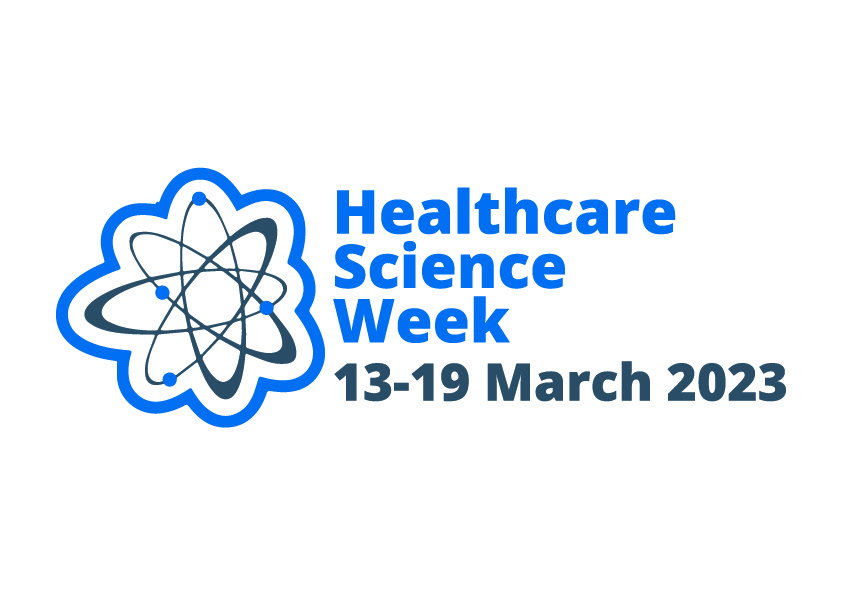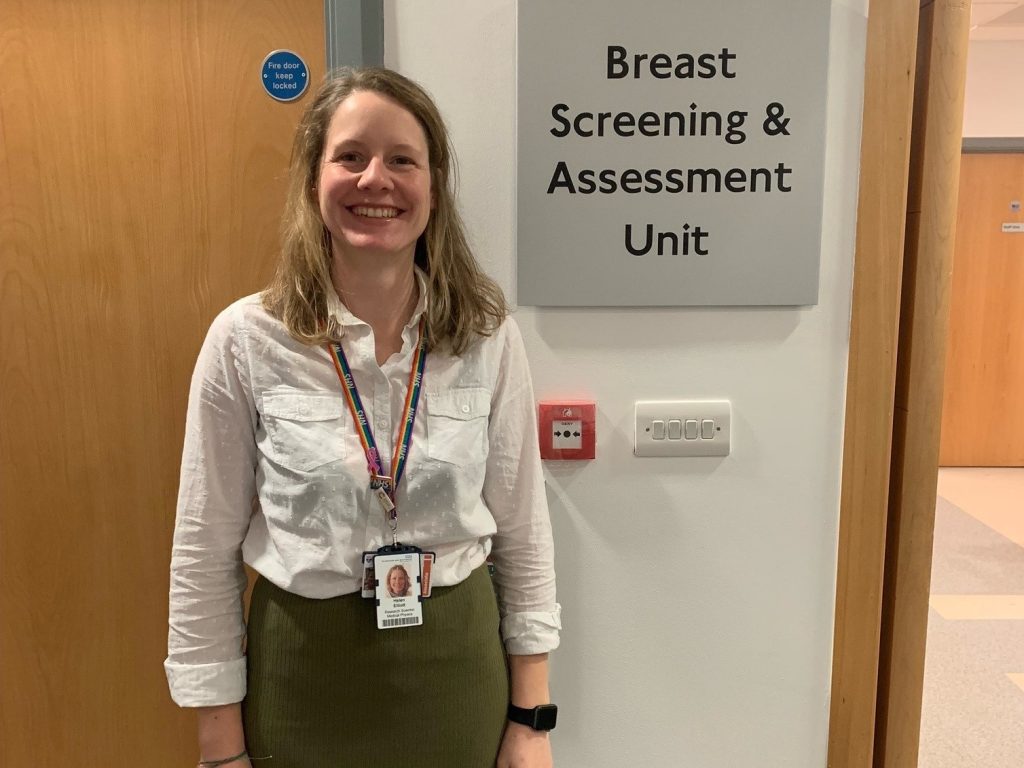
We’re supporting Healthcare Science Week, an annual week of celebration and awareness-raising for the many careers in healthcare science.
Here, research scientist, Helen Elliott, talks about her career to date and what she’s currently working on.
Tell us a little bit about yourself
Hello, my name is Helen Elliott and I’m a research scientist in the medical physics department at the Royal Victoria Infirmary (RVI) in Newcastle.
Back in 2009, I graduated from Newcastle University with an undergraduate degree in biology. During my time at university, I also worked part time as an administration assistant in a hospital research department. I enjoyed working in the hospital environment and wanted to have a career involving patients and working within clinical teams.
How did you become a research scientist?
In 2014, I started working in the NHS as a clinical trials officer, where I worked with cancer teams as a research lead ,enabling patients to take part in national research studies. I developed an interest in breast cancer specifically and was lucky enough to get my current job in 2019, where I undertake breast cancer research and work with patients. I’m also continuing my own education by studying for a PhD as part of the work that I’m doing.
What is your research about?

I have been working on a breast cancer project funded by Innovate UK in partnership with Newcastle University, University College and Kromek, a commercial radiation detection company based in Durham.
Death from breast cancer has reduced by 20% since the start of the UK breast cancer screening programme in 1988, despite this, 11,500 women are still dying from breast cancer every year. The screening programme invites women aged 50-70 for an X-ray mammogram every 3 years.
Mammogram detects the difference between cancer cells which are densely packed together and surrounding normal breast tissue. However, eight percent of women in the screening programme have normal tissue that is very dense which makes it difficult to see a cancer and detect it at an earlier stage.
How could this research change the way we detect breast cancer?
Traditional mammography ( breast screening) is often less able to clearly image tumours in women with dense breast tissue. The aim of our work was to investigate a potential solution to this problem by exploring a breast imaging test called Molecular Breast Imaging (MBI).
MBI uses a radioactive tracer that ‘lights up’ areas of cancer in the breast and is effective in women with dense breast tissue – which is prevalent in people who are at higher risk of cancer, however exposure to radiation is much higher than in mammograms.
The partners are working together to develop a low-dose version that has lower radiation exposure. It is estimated that the solution could deliver eight times less radiation compared to existing MBI technology.
In future, we hope this technology could help us to identify breast cancer in women with dense breasts at an earlier stage and save more lives
What’s next?
In February this year, we received a further three years of funding from Innovate UK to take this research forward.
The next three years will focus on the manufacture of a second generation MBI machine which will address concerns, such as long scan time, and will hopefully include a first in human study of the new device at the RVI.
